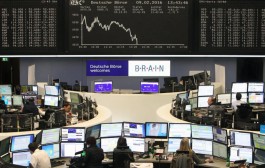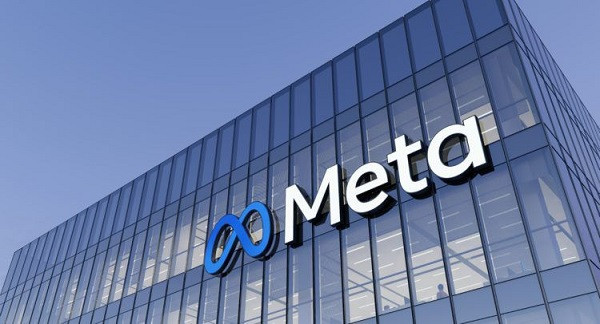Meta Platforms warned that its advertising business is highly dependent on macroeconomic conditions around spending, causing its shares to decline in the market, despite announcing revenues that exceeded expectations.
“We are highly exposed to fluctuations in the macro landscape” and the revenue outlook for 2024 is uncertain, the company's chief financial officer, Suzanne Lee, said on a call with investors.
Meta reported revenues that beat average market analyst estimates, showing investors that the company can improve its core advertising business as it invests heavily in artificial intelligence and virtual reality.
Third-quarter sales recorded $34.2 billion, according to company statements on Wednesday, compared to the average analyst estimate of $33.5 billion. Meta shares rose by 5.5%.
Meta Platforms is recovering from difficulties related to its advertising activity, which it began last year. The company has laid off thousands of employees and suspended a wide range of projects as it focuses its attention on ad optimization and artificial intelligence algorithms.
Microsoft and Sony benefit from artificial intelligence in games
The pace of talk about the Metaverse, or the virtual reality world that the company's president, Mark Zuckerberg, renamed it for, has decreased, especially in the face of a community of skeptical investors.
Immediately after the announcement of the financial results, the company's shares jumped by about 4% to $316 in additional trading after the market closed, but it quickly squandered these gains, falling by 3.3% to $289.5. Meta Platforms stock has risen 149% since the beginning of the year through Wednesday's close.
Meta rearranges the bulletin sheets with Brills
The company's core advertising business returned to growth. Meta posts short videos, which she calls Reels, on Instagram and Facebook. Although this helped increase the time users spent viewing the app's content, Meta advertisers didn't quite get used to the new format.
Meanwhile, investors are closely monitoring Meta's spending on projects like virtual reality and artificial intelligence technology. On Wednesday, the tech giant lowered its 2023 spending forecast to between $87 billion and $89 billion.
Cost reductions helped expand operating margins to 40%, compared to 20% in the same period last year. Meta reported third-quarter earnings per share of $4.39, compared to $1.64 a year earlier.
Meta focuses on virtual reality and artificial intelligence
For 2024, Meta expects its expenses to increase to between $94 billion and $99 billion. Most of this money will go to the continued expansion of the technology infrastructure to run complex artificial intelligence and virtual reality tools, and to hire more workers in high-cost technical roles to build those products, according to its statement.
Meta's approach to the AI race was different from its Big Tech counterparts. More often than not, research or large language models (the technology that powers AI chatbots) are released for developers to use for free. Meta believes that this open strategy will help improve the technology faster.
Meta launches a tool for writing programming codes with artificial intelligence
At its developer conference in September, the company introduced its first generative AI features to consumers, including a number of chatbots and photo editing tools for platforms like Instagram and Facebook.
At the event, CEO Michael Zuckerberg also expanded his usual commitment to the all-virtual world, to include augmented reality, which overlays computer-generated images over the real world. The company announced an updated version of the smart glasses it developed with sunglasses maker Ray-Ban, in addition to the new Quest 3 virtual reality headset.
In a report on Wednesday, Meta said that Reality Labs, the division that makes smart glasses and headphones, recorded an operating loss of $3.7 billion and revenue of $210 million. Analysts were expecting an operating loss of $3.94 billion and revenue of $313.4 million on average.
Total monthly meta users rose 7% to 3.14 billion in the final month of the third quarter, compared to analyst estimates of 3.05 billion.







































